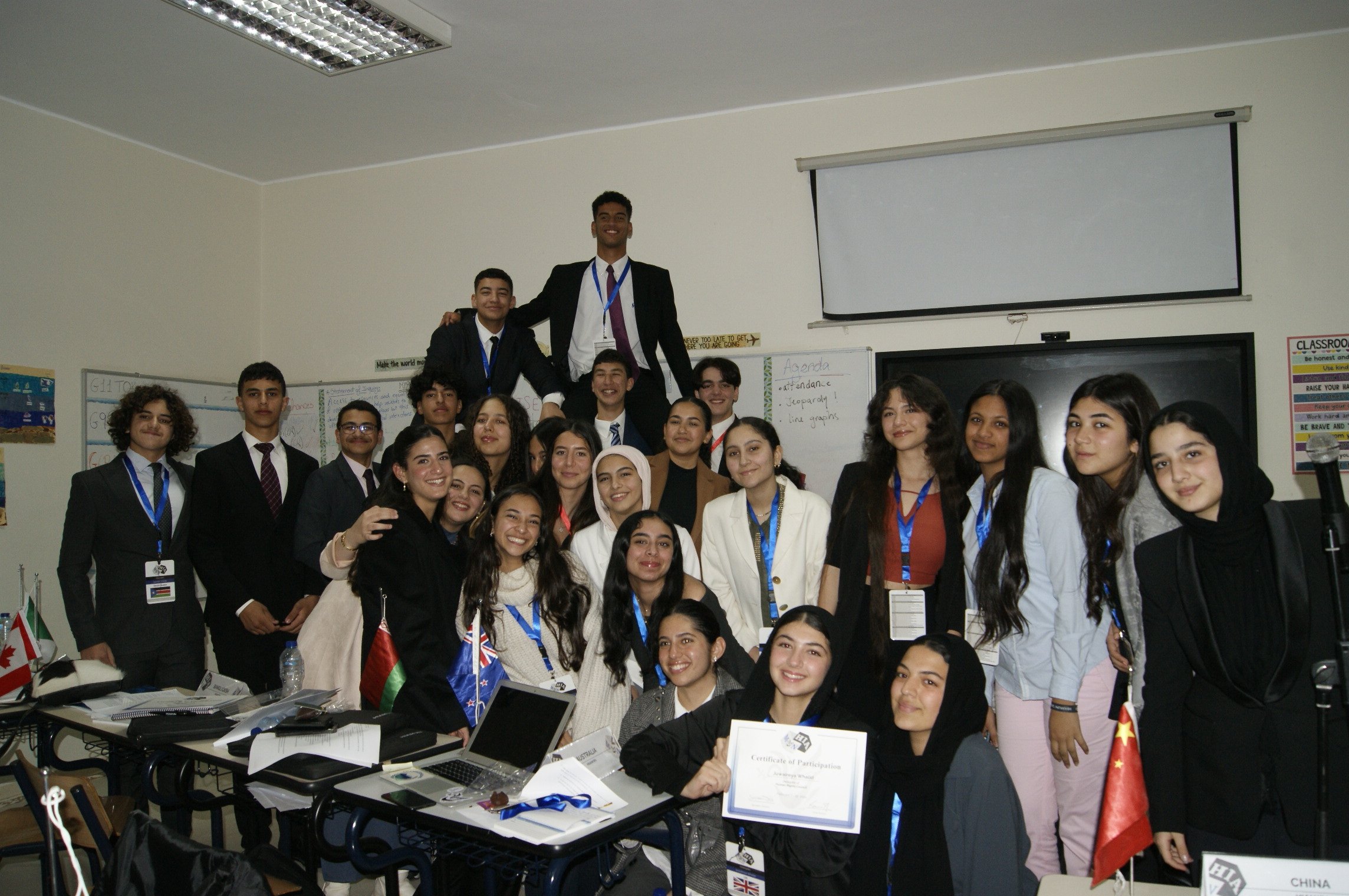Human Rights Council
Nadia Shokri, President
As we welcome you here in this distinguished Model United Nations assembly, it is with great honor and gratitude that I address you as the President of the Human Rights Council for this year’s HIAMUN ’26. Our theme this year is Resonance, a concept that reminds us how deeply the actions we take, the words we speak, and the values we uphold can echo across borders, generations, and lives. Just as resonance allows one voice to amplify another, we, as delegates, have the power to amplify the voices of those who are silenced, ignored, or forgotten.
The Human Rights Council (HRC) remains a very important organ of the United Nations, entrusted with the promotion and protection of human rights globally. With forty-seven member states elected by the General Assembly, the HRC convenes regularly in Geneva to assess human rights concerns, conduct thematic reviews, and recommend international actions. At its core, the Council embodies the values set forth in the Universal Declaration of Human Rights, striving to create a world where dignity and justice are not ideals, but guarantees.
Adam Ghanem, Chair
This year, my esteemed Chair, Adam Ghanem, and I have selected three critical issues that resonate deeply with the core of human dignity and international peace. These topics reflect some of the most pressing challenges to human rights in our current global landscape, and it is our collective responsibility to address them with urgency, insight, and compassion.
First, we will explore the issue of creating a framework to protect citizens in fragile states from rising violence perpetrated by non-state actors and militias. In regions where state authority is weakened, vulnerable populations become the primary victims of violence, displacement, and lawlessness. As future leaders, we must work toward a global framework that ensures protection, accountability, and support for those caught in the crossfire.
Second, we turn our attention to the human rights violations stemming from illicit organ trafficking and unethical medical transplantation practices. This issue not only commodifies the human body, but targets the most desperate; those without voice or choice. It is our responsibility to strengthen international mechanisms to combat these crimes, ensure ethical medical standards, and uphold the sanctity of life.
Finally, we must scrutinize how counterterrorism efforts can and must comply with international human rights standards. In the name of national security, too many governments have crossed ethical lines curtailing freedoms, justifying torture, and silencing dissent. Our challenge is to uphold justice without sacrificing liberty, and to ensure that human rights are not collateral damage in the fight against terror.
Adam and I are thrilled to welcome each of you to HIAMUN ’26. We urge you to challenge yourselves, to listen deeply, and to debate passionately. Let your voices resonate with purpose, so that together we can generate solutions that extend far beyond the walls of this committee. We hope this conference will not only leave you more informed, but more inspired and ready to carry forward the mission of promoting human rights in whatever path you pursue.
Nadia Shokri, President of the Human Rights Council
Topics
2. Ensuring compliance with international human rights standards in counterterrorism efforts










